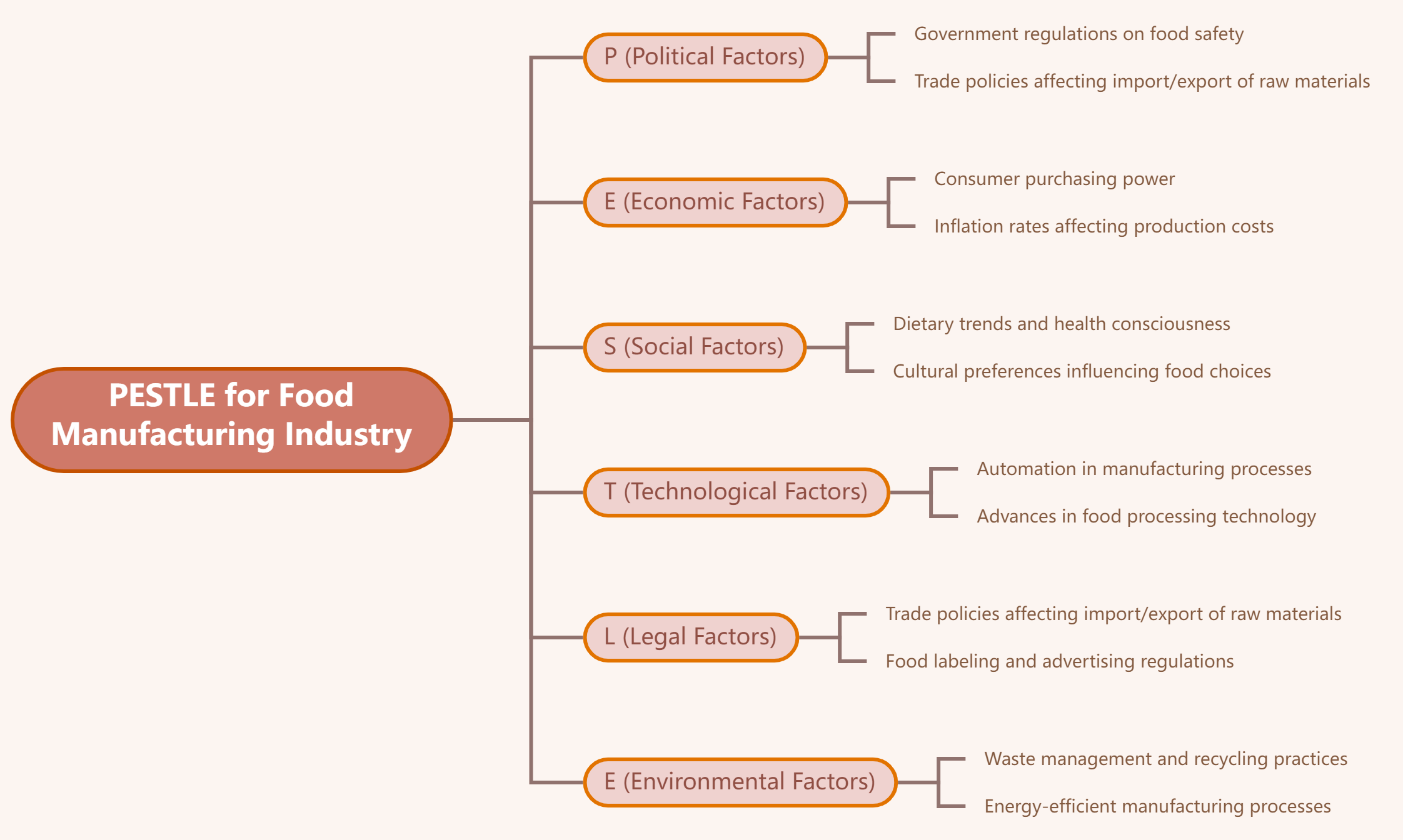
Content of the PESTLE
The PESTLE systematically breaks down the various factors influencing the food manufacturing industry. Under Political Factors (P), it addresses government regulations related to food safety and trade policies affecting the import/export of raw materials. In the realm of Economic Factors (E), it explores consumer purchasing power and the impact of inflation rates on production costs. Social Factors (S) encompass dietary trends, health consciousness, and cultural preferences affecting food choices. Technological Factors (T) include discussions on automation in manufacturing processes and advancements in food processing technology. The Legal Factors (L) section covers trade policies, especially those impacting the import/export of raw materials, and regulations related to food labeling and advertising. Lastly, Environmental Factors (E) are explored with a focus on waste management, recycling practices, and energy-efficient manufacturing processes.
Development of Food Manufacturing Industry
In alignment with the insights gleaned from the mind map, the food manufacturing industry is poised to strategically navigate a multifaceted landscape. Proactive engagement with political factors entails a continuous commitment to compliance with evolving food safety regulations and a nuanced approach to trade policies governing the import and export of raw materials. Fostering resilience on the economic front necessitates the industry’s adaptability to fluctuations in consumer purchasing power and the impact of inflation on production costs, calling for financial agility as a key strategy. Embracing societal shifts involves a deliberate alignment with dynamic dietary trends, health consciousness, and diverse cultural preferences to maintain a strong market presence.
The industry’s technological advancement is crucial, necessitating a commitment to automation and staying at the forefront of processing technologies to enhance efficiency and competitiveness. Legally, meticulous navigation of trade policies and strict adherence to regulations regarding food labeling and advertising is imperative in this highly regulated environment. Furthermore, a commitment to environmental responsibility through sustainable waste management and energy-efficient practices forms an integral part of the industry’s forward-looking strategy. In essence, a comprehensive and adaptive approach to political, economic, social, technological, legal, and environmental factors is crucial for the food manufacturing industry to ensure sustained growth and resilience in a dynamic business environment.
Visual Paradigm Smart Board: A Dynamic Mind Mapping Tool
Discover the potential of Visual Paradigm Smart Board, a sophisticated online mind map app designed to seamlessly integrate into collaborative brainstorming and strategy sessions. As an adept mind map maker, this tool empowers users to effortlessly dissect and express intricate ideas, as exemplified in the presented mind map. Its user-friendly interface facilitates a comprehensive analysis of external factors. Functioning as an online brainstorming tool, Visual Paradigm Smart Board cultivates a conducive environment for collective exploration, fostering collaborative insights into complex subjects. In the realm of online mind map software, this tool subtly reshapes the landscape, providing a valuable asset for those navigating the intricacies of strategic planning and analysis.